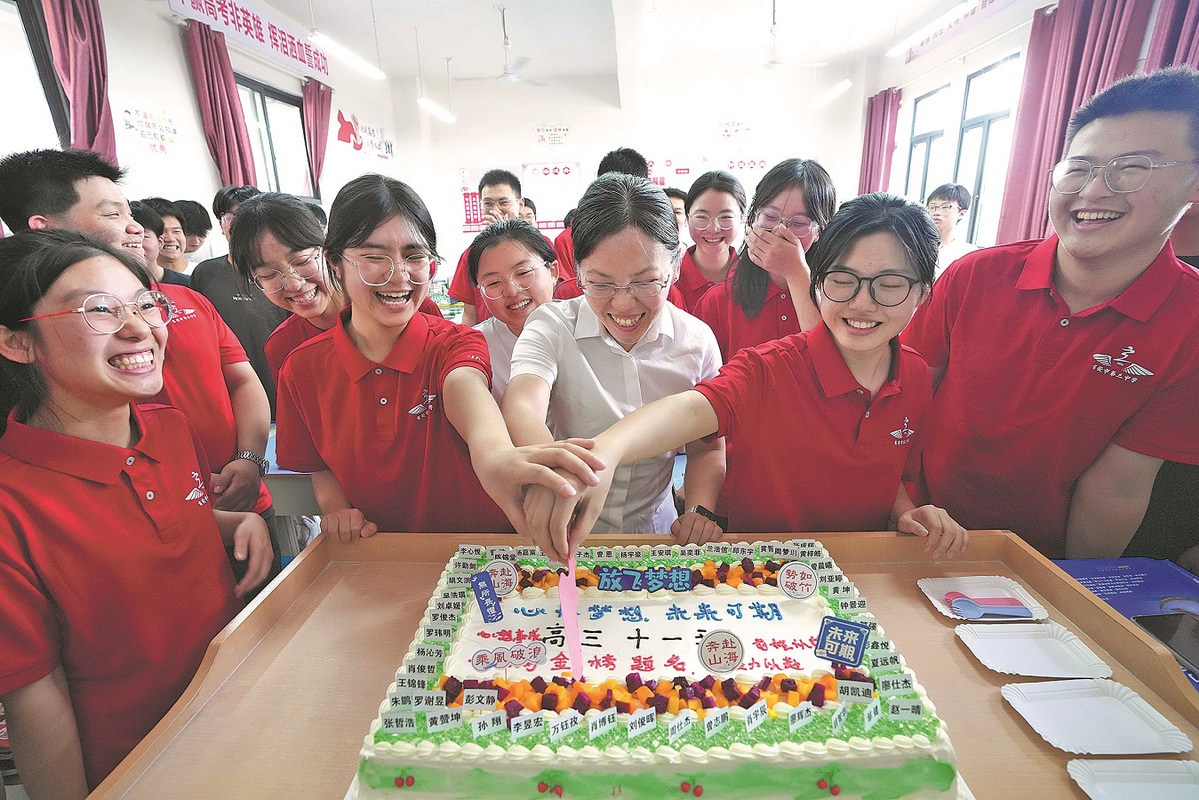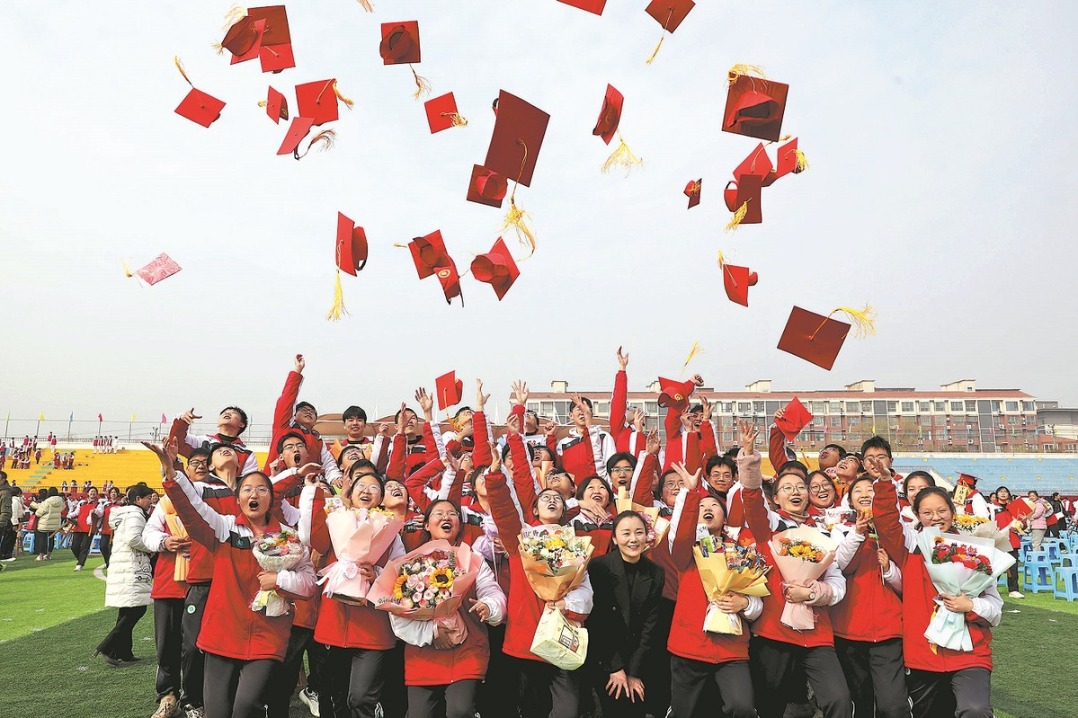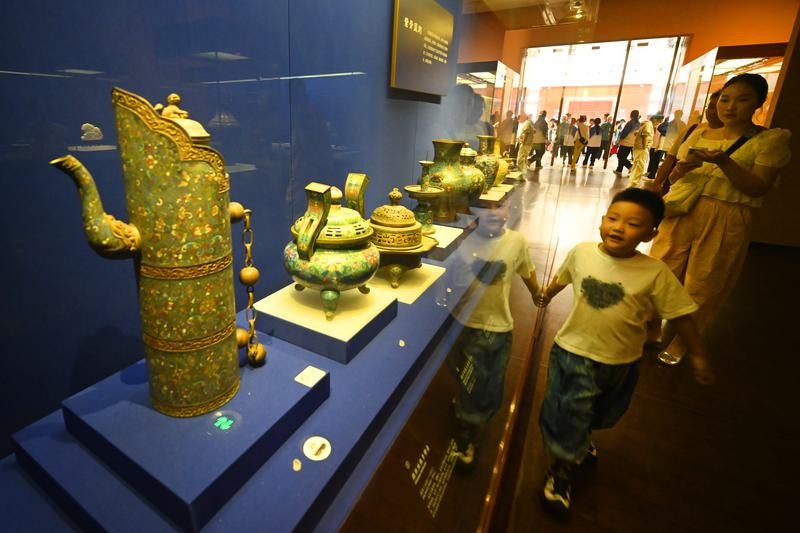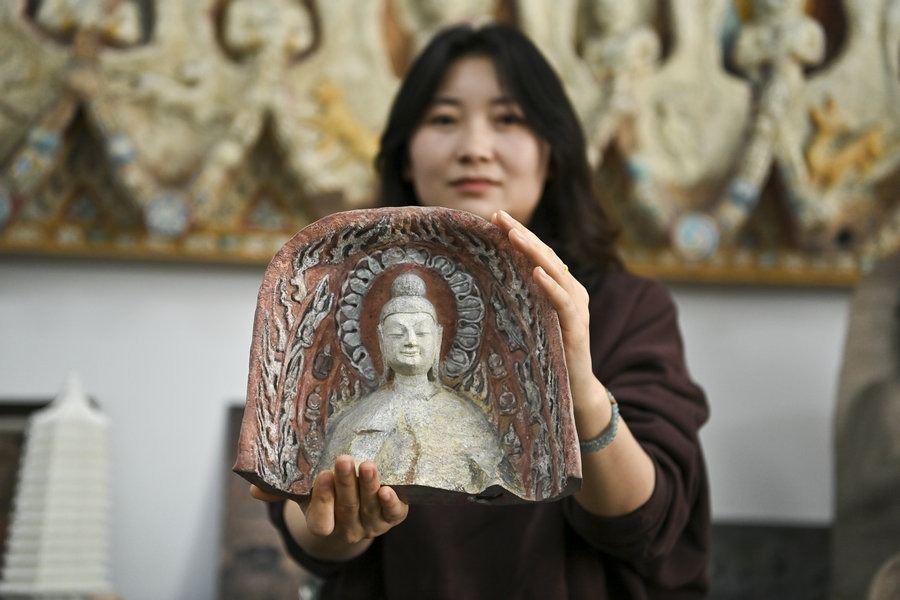Pressure of gaokao success looms over students' new weekend freedom
Policy to enforce two-day break sees mixed response of anxiety, relief


Teachers' perspectives
Many teachers have championed the policy's potential to heal what they see as a broken system.
Deng, a Chinese teacher from Zhengzhou, Henan province, said the policy, which was implemented on March 20 at her school, allows non-seniors to rest at home, while seniors can voluntarily stay on campus for self-study.
Although students' after-school pressure has decreased, the shortened class hours haven't resulted in reductions of the curriculum. Some students find the weekends too relaxing and struggle with self-control, while others feel the time off is just right, she said.
For ordinary families, the gaokao remains a critical opportunity to change their children's fate. However, prolonged studying risks causing anxiety, physical strain, and even illnesses like depression, said Deng, who chose to use one name.
Students most-affected by the enforcement are mid-to-lower achievers lacking self-discipline and parental supervision who are likely to slip further behind, while self-motivated students can adapt well, Deng said.
"At my school, students now balance leisure and study more openly. They return refreshed, sharing weekend experiences, which boosts mental health," she said.
Deng said her feelings about the policy were divided.
"While we tell students grades aren't everything, the reality is scores define their future. For ordinary families, grades are everything," she said.
Lan, a high school teacher from Shuozhou, Shanxi province, expressed strong support for the policy.
At his school, junior grades have adopted two-day weekends, but seniors still follow a 1.5-day break every two weeks.
Lan, who preferred to use one name, said many parents have resisted the policy, complaining their children "waste time on phones at home".
They prefer keeping their children at school and "out of sight, out of mind", he said.
"As a front-line teacher, I firmly believe dual rest days are urgently needed. Students operate like machines, and nearly every class has several students who've developed psychological issues or dropped out due to academic pressure. Rest allows them to 'feed their souls', explore passions and reconnect with nature," he said.
Despite the need for students to recharge their batteries, schools compete fiercely for limited resources, measuring success by gaokao rankings. This culture of spending excessive time studying — fueled by institutions like Hengshui High School Hebei in Hebei province known nationwide for its strict study regimen — must end, he stressed. "Learning should be part of life, not its entirety," he said, adding all students crave free weekends.
Lang Shiyuan, an English teacher from Changsha No 1 High School in Hunan said his school introduced the policy around the third week of the semester, and banned organized classes on weekends.
Students now voluntarily study in open classrooms. Some parents worry because top students in other regions still study on weekends, he said. "Personally, I support the policy. Teachers can finally get more rest," he said.
While grades may dip, the policy benefits holistic development and identifies truly capable learners, he said.
He hopes it continues despite some short-term pains.























